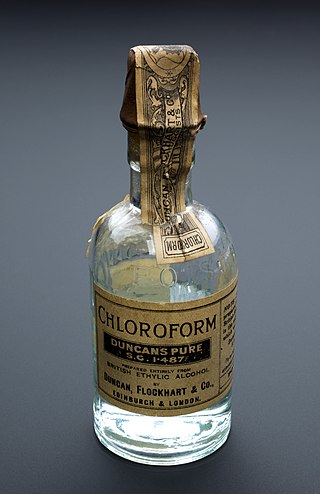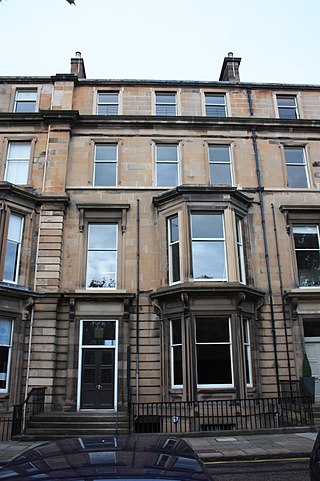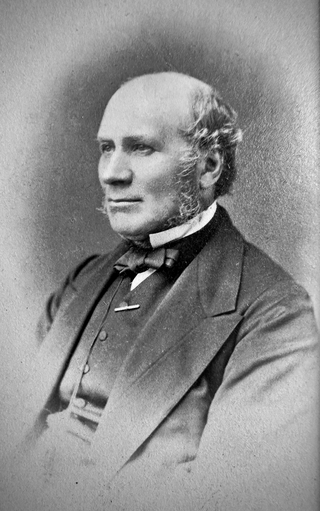Related Research Articles
Prof John Lizars FRSE was a Scottish surgeon, anatomist and medical author.

Henry Home-Drummond FRSE FSA was a Scottish advocate, landowner, agricultural improver, and politician.

Alexander Smith Kinnear, 1st Baron Kinnear, was a Scottish advocate and judge. He served as Lord of Council and Session (1882–1913), and was appointed to the Privy Council in 1911.

Thomas Allan of Lauriston FRS FRSE FSA FLS was a British mineralogist.

Thomas ThomsonFRSE FSA Scot was a Scottish advocate, antiquarian and archivist who served as Principal Clerk of Session (1828–1852) and as secretary of the literary section of the Royal Society of Edinburgh (1812–20).
Robert Morehead FRSE was a Scottish clergyman and poet who served as Dean of Edinburgh from 1818 to 1832.

Sir Henry Jardine of Harwood WS FRSE was a solicitor, antiquarian and a founder member of the Bannatyne Club in 1823, with his friend Sir Walter Scott.

Patrick Dudgeon of Cargen FRSE DL (1817–1895) was a British landowner, mineralogist and meteorologist. He was co-founder with Matthew Forster Heddle of the Mineralogical Society in Great Britain in 1876.

James Duncan FRSE FRCS FRCSE was a Scottish surgeon and manufacturing chemist responsible for much of the British supply of chloroform in the mid-19th century. From 1839 to 1866 he was Director of Duncan Flockhart & Co one of Scotland’s largest chemical manufacturers.

Peter David Handyside FRSE FRCSE (1808–1881) was a Scottish surgeon and anatomist. He was president of the Royal Medical Society in 1828. He won the Harveian Society Medal in 1827. He was also president of the Medico-Chirurgical Society of Edinburgh in 1871.
Robert Handyside, Lord Handyside FRSE (1798–1858) was a Scottish lawyer and judge who served as Solicitor General for Scotland and a Lord of Session.
Thomas Kinnear FRSE (1796–1830) was a Scottish banker and Director of T. Kinnear & Sons. He was also a Director of the Bank of Scotland.

John MacGregor McCandlish WS FRSE (1821–1901) was a Scottish lawyer and actuary. He was the first president of the Faculty of Actuaries.

Alexander MacDuff of Bonhard WS FRSE was a Scottish lawyer, landowner and agriculturalist.
The Hon. Robert MacFarlane, Lord Ormidale FRSE was a Scottish lawyer and a Senator of the College of Justice. In 1868 he brought about a reform in the Court of Session ending technicalities in pleading, to try to focus upon justice in its broadest sense.
Colin Mackenzie of Portmore WS FRSE (1770–1830) was a Scottish lawyer and companion of Sir Walter Scott.

John Steuart Newbigging FRSE WS was a short-lived Scottish lawyer and legal author. He was a Member of the Edinburgh Society of Arts.

Andrew Wood MD FRCSEd FRSE LLD was a 19th-century Scottish surgeon who served as President of the Royal College of Surgeons of Edinburgh from 1855 to 1857.
John Sligo of Carmyle FRSE (1794–1858) was a 19th-century Scottish merchant and amateur geologist.
John Stark of Huntfield FRSE FSSA (1779–1849) was a 19th-century Scottish printer, author and naturalist.
References
- ↑ Edinburgh and Leith Post Office Directory 1848-49
- ↑ Edinburgh and Leith Post Office Directory 1810-11
- ↑ Edinburgh and Leith Post Office Directory 1825-26
- ↑ Edinburgh and Leith Post Office Directory 1830-31
- ↑ Biographical Index of Former Fellows of the Royal Society of Edinburgh 1783–2002 (PDF). The Royal Society of Edinburgh. July 2006. ISBN 0-902-198-84-X. Archived from the original (PDF) on 24 January 2013. Retrieved 17 February 2017.
- ↑ "James Kinnear grave monument details at St John and St Cuthbert (Joint) Church burial ground, Edinburgh, Lothian, Scotland".
- ↑ Biographical Index of Former Fellows of the Royal Society of Edinburgh 1783–2002 (PDF). The Royal Society of Edinburgh. July 2006. ISBN 0-902-198-84-X. Archived from the original (PDF) on 24 January 2013. Retrieved 17 February 2017.